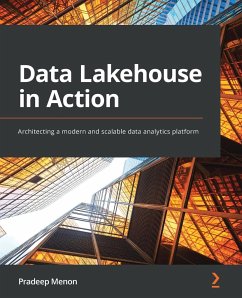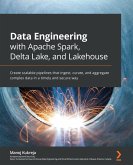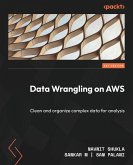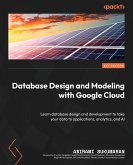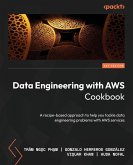Propose a new scalable data architecture paradigm, Data Lakehouse, that addresses the limitations of current data architecture patterns Key Features:Understand how data is ingested, stored, served, governed, and secured for enabling data analytics Explore a practical way to implement Data Lakehouse using cloud computing platforms like Azure Combine multiple architectural patterns based on an organization's needs and maturity level Book Description: The Data Lakehouse architecture is a new paradigm that enables large-scale analytics. This book will guide you in developing data architecture in the right way to ensure your organization's success. The first part of the book discusses the different data architectural patterns used in the past and the need for a new architectural paradigm, as well as the drivers that have caused this change. It covers the principles that govern the target architecture, the components that form the Data Lakehouse architecture, and the rationale and need for those components. The second part deep dives into the different layers of Data Lakehouse. It covers various scenarios and components for data ingestion, storage, data processing, data serving, analytics, governance, and data security. The book's third part focuses on the practical implementation of the Data Lakehouse architecture in a cloud computing platform. It focuses on various ways to combine the Data Lakehouse pattern to realize macro-patterns, such as Data Mesh and Data Hub-Spoke, based on the organization's needs and maturity level. The frameworks introduced will be practical and organizations can readily benefit from their application. By the end of this book, you'll clearly understand how to implement the Data Lakehouse architecture pattern in a scalable, agile, and cost-effective manner. What You Will Learn:Understand the evolution of the Data Architecture patterns for analytics Become well versed in the Data Lakehouse pattern and how it enables data analytics Focus on methods to ingest, process, store, and govern data in a Data Lakehouse architecture Learn techniques to serve data and perform analytics in a Data Lakehouse architecture Cover methods to secure the data in a Data Lakehouse architecture Implement Data Lakehouse in a cloud computing platform such as Azure Combine Data Lakehouse in a macro-architecture pattern such as Data Mesh Who this book is for: This book is for data architects, big data engineers, data strategists and practitioners, data stewards, and cloud computing practitioners looking to become well-versed with modern data architecture patterns to enable large-scale analytics. Basic knowledge of data architecture and familiarity with data warehousing concepts are required.
Hinweis: Dieser Artikel kann nur an eine deutsche Lieferadresse ausgeliefert werden.
Hinweis: Dieser Artikel kann nur an eine deutsche Lieferadresse ausgeliefert werden.

